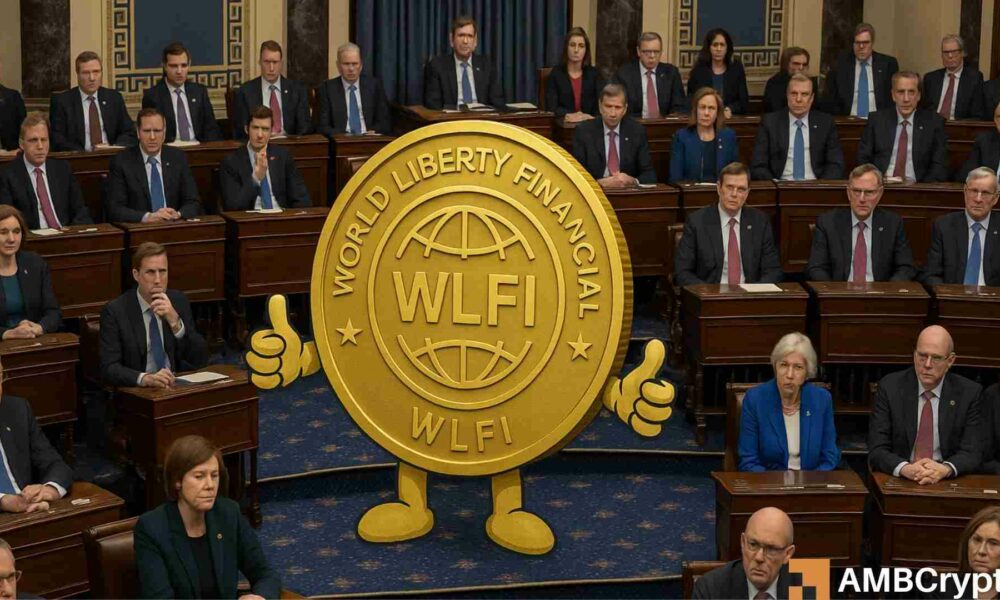
World Liberty Financial: A Controversial Player in Crypto Legislation
The crypto market has been abuzz with discussions about World Liberty Financial (WLFI), a decentralized finance (DeFi) project that recently introduced its token to the public. However, concerns about its potential influence on upcoming cryptocurrency legislation have stirred significant debate among lawmakers and industry experts.
WLFI’s Role in Disrupting Legislative Progress
Jake Chervinsky, Legal Chief at crypto venture capital firm Variant Fund, recently emphasized the challenges WLFI presents to passing the much-anticipated crypto market structure bill. He highlighted that the project, linked to former President Donald Trump, could make it “politically challenging” to secure the necessary votes in the Senate. The bill requires support from at least seven Democratic senators, but reports of conflict-of-interest concerns tied to the Trump family cast doubts over bipartisan support.
The Trump Connection and Rising Skepticism
Speculation around Trump-affiliated firms controlling approximately 22.5 billion WLFI tokens—equating to almost a quarter of the project’s total supply—raises ethical red flags. With WLFI tokens valued at $0.23 each, the Trump family’s holdings are estimated to exceed $5 billion. These revelations have fueled criticism, particularly from Democrat Senator Elizabeth Warren, who has labeled the profits as “corruption.”
World Liberty Financial markets itself as heralding a “new era of finance,” with innovative products such as its stablecoin, USD1. Some analysts even liken it to successful DeFi platforms like Aave. However, skepticism remains high among lawmakers due to perceived conflicts of interest involving Trump’s broader crypto endeavors, including the Official Trump (TRUMP) memecoin.
Legislative Gridlock Ahead?
In light of these developments, many within the crypto community are concerned about the future of the CLARITY Act, a comprehensive market structure bill scheduled for debate in September. As per predictions from Polymarket, the chance of the act passing into law by 2025 currently stands at a mere 30%, reflecting a significant drop in confidence since mid-2023. Crypto advocates, including Dennis Porter from the Satoshi Action Fund, have echoed Chervinsky’s concerns about WLFI’s impact on legislative progress.
Explore DeFi Products: Manage Investments Strategically
For those looking to diversify their portfolios into DeFi, consider exploring established platforms such as Aave (Aave.com), where you can lend and borrow cryptocurrency with secure, transparent protocols. Products like USD1 stablecoins might mirror similar innovations but exercise caution with newer projects and conduct thorough research.
Conclusion
As the debate over crypto legislation heats up, all eyes are on World Liberty Financial and its ripple effects. While the DeFi project positions itself as a transformative player, its associations with political figures stir controversy and complicate regulatory advancements. Whether WLFI will spur innovation or hinder progress remains to be seen, but the topic underscores the delicate intersection of politics and finance in the cryptocurrency sector.






